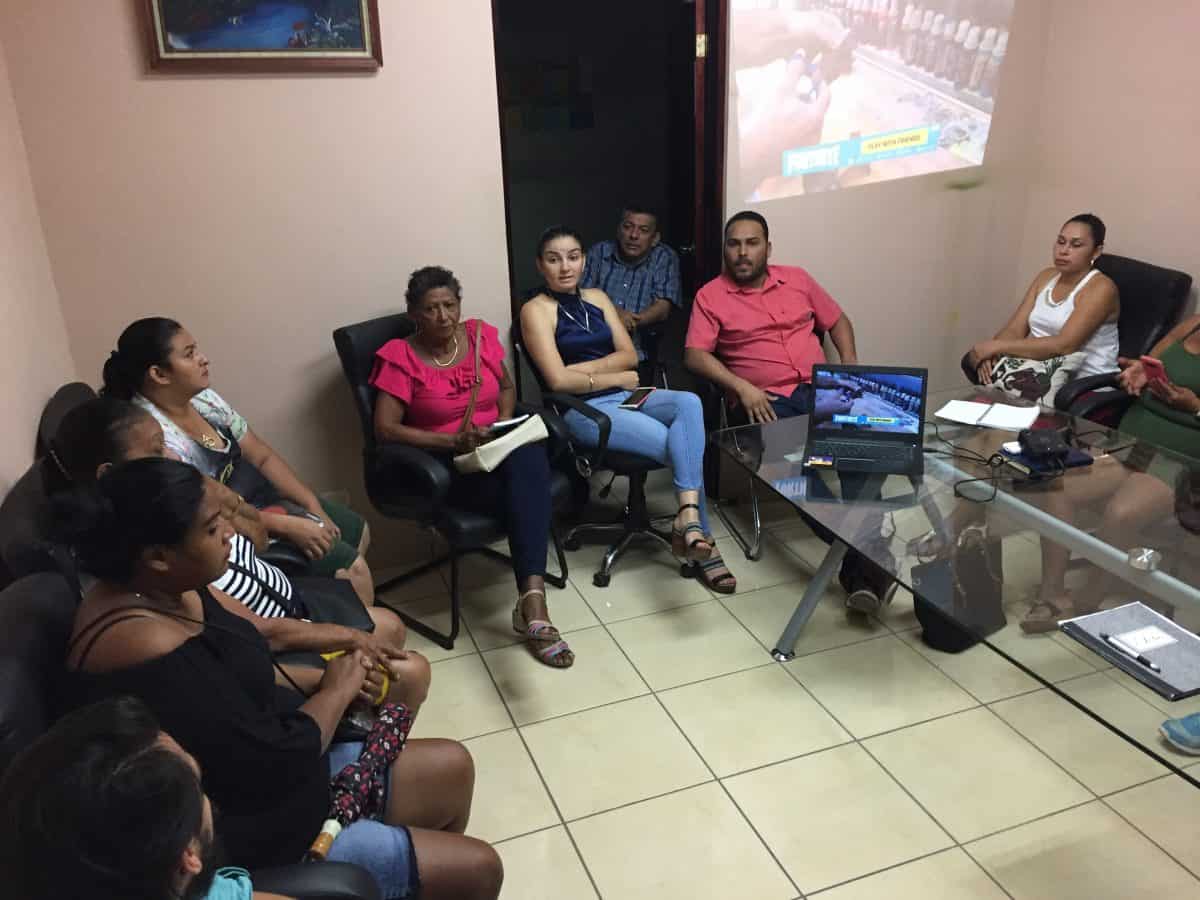Many people applauded Costa Rica for outlawing shrimp trawling last year. The new ruling has survived many court challenges and even today the shrimp industry and INCOPESCA, which manages the country’s fisheries, is doing technical studies on a supposedly sustainable type of trawling.
Henry Marin, a socioeconomic expert and project manager for FECOP, an organization that advocates for sports fishing and of sustainable fishing in Costa Rica, understands that conservation also has a social cost.
“What most people don’t realize is that the ruling displaced 300 women in Puntarenas who worked as shrimp peelers that now are left unemployed. Many of these women are the heads of their households,” Marin said.
Hundreds of people in Puntarenas were employed by the trawling industry.
Larry Dahlberg, the legendary fisherman, lure maker, and host of television show Hunt for Big Fish, visited Costa Rica recently and Marin explained the shrimp peeler blight. They both agreed that conservation had a social cost. Then they agreed they could do something about it.
Dahlberg has designed many famous fishing lures and last year offered to come down and teach these women displaced from the shrimping industry how to make fishing lures since they were well adapted to working with their hands.
Marin started the leg-work and contacted the women’s group. Then there were meetings with INCOPESCA, which is in charge of Costa Rican fisheries, and Instituto Nacional de Aprenizaje (INA), Costa Rica’s technical institute. Both groups were eager to participate.
Dahlberg enlisted the help of Mike Faupel, President of Alumilite Engineering Company who owns MakeLure.com; Amazing Casting products, suppliers of molding and casting products; and Brad Roberts, a well-known lure maker and owner of Jaw Sportswear. The three will be spending the last week of February in Costa Rica training a group of these women as well as five INA instructors to carry on the training to keep the program growing.
The group will be making fishing lures for both hard and soft baits and are planning to develop a bio-degradable lure. After they learned the molding process, they can expand to other products like souvenirs for cruise ship tourists that visit Puntarenas.
The project will not be the solution for all 300 women, but if done properly, the co-op they form will employ a good number of women. Marin understands this is only the first step.
“They will need help learning how to manage a business and INA has plans to include this in the program,” Marin said. “Volunteers are invited to participate, especially university students in business administration or with knowledge of 3D printing looking for a community project are welcome.”
For more information or to volunteer for the project contact Henry Marin at 2291-9150 hmarin@fecop.org
Todd Staley has run fishing sport operations on both coasts of Costa Rica for over 25 years. He recently decided to take some time off to devote full-time to marine conservation and is the communications director at FECOP. Contact him at wetline@hotmail.com.
This story was made possible thanks to The Tico Times . If only 5 percent our readers donated at least $2 a month, we’d have our operating costs covered and could focus on bringing you more original reporting from around Costa Rica. We work hard to keep our reporting independent and groundbreaking, but we can only do it with your help.






